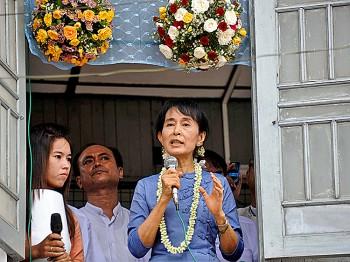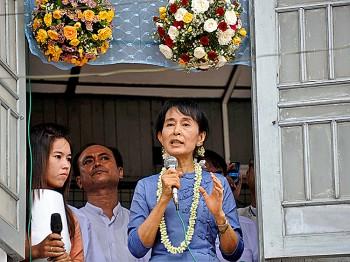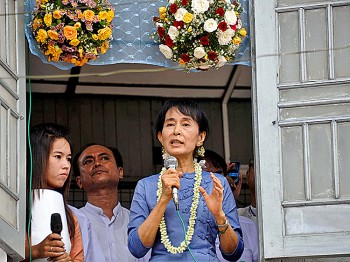Burma Authorities Send Mixed Messages to Aung San Suu Kyi
Suu Kyi: Testing the Limits of Freedom.

RARE VISIT: Burmese democracy icon Aung San Suu Kyi (R) gives a speech to her supporters during a rare visit to Bago, Aug. 14. WIN/AFP/Getty Images
|Updated:






